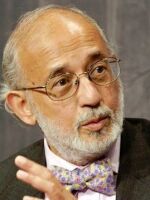Margaret Thatcher’s death removes from the world’s stage a remarkable human being. She rose from humble beginnings in a society ridden with class and gender bias to become the longest serving British prime minister of the 20th Century.
Her leadership transformed “The Sick Man of Europe” as Britain’s economy was then called to the top tier of European countries.
Thatcher had that rare gift of effective leaders - the ability to cut to the heart of a problem and then relentlessly focus on overcoming it. In this she reminds me of General Ulysses Grant who initially believed the Civil war was little more than a family squabble that would be settled quickly with a judicious use of force - but soon realized the South was deadly serious in its purpose and he would have to wage total war to crush the rebellion. After that he went for the jugular and destroyed the Southern military and the farms, factories, roads, and bridges that supplied it.
So it was with Thatcher. Once she recognized that Britain’s economy was trapped because so much of it was owned by the government she knew exactly what had to be done. “Pennies don’t fall from heaven,” she said, “They have to be earned on earth.” Then she went to work.
Industry after industry - airlines, telephones, electricity, ship-building, airports, and coal-production - was hacked away from public ownership and privatized. On the road to transforming her country she faced the wrath of entrenched bureaucracies but earned the love of grateful Britons who reelected her three times. Like General Grant she recognized that in spite of the pain, one must remove a cancer if the patient is to live and prosper again.
Thatcher loved America and developed a special bond with President Reagan - who never forgot it was the Russians who had dubbed her The Iron Lady. So when she anointed the Russian prime minister, Mr. Gorbachev as someone with whom the West could do business, the conservative American President had the shield he needed to begin negotiations with the Soviet Union - even as he raised American defense spending to a level the Russians could never match. The rest, as they say, is history.
But the Iron Lady had a softer human side to her that she rarely showed in public. I had the privilege once of being her host at an evening of pomp and circumstance. Secretly we had arranged for her to be introduced by her good friend, Caspar Weinberger, the former Secretary of Defense. Weinberger had thrown open the doors of American military warehouses to ensure that the Royal Navy armada Thatcher sent half way around the world to eject the Argentinians from the Falkland Islands never ran out of supplies. It was a gesture she never forgot.
I was sitting next to Thatcher as Weinberger walked to the podium. And I saw the Iron Lady’s eyes grow misty - as did mine, when I heard of her death.





